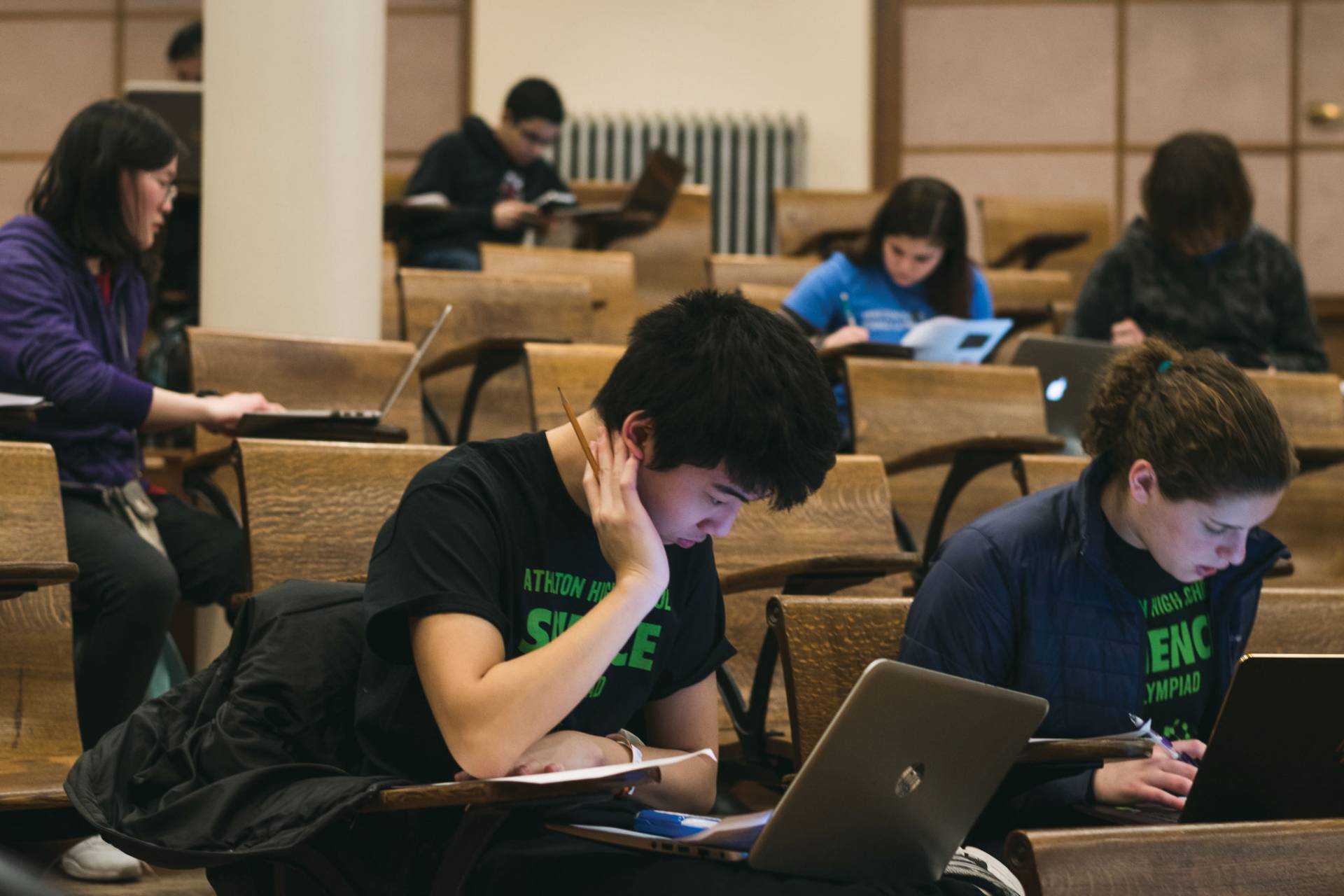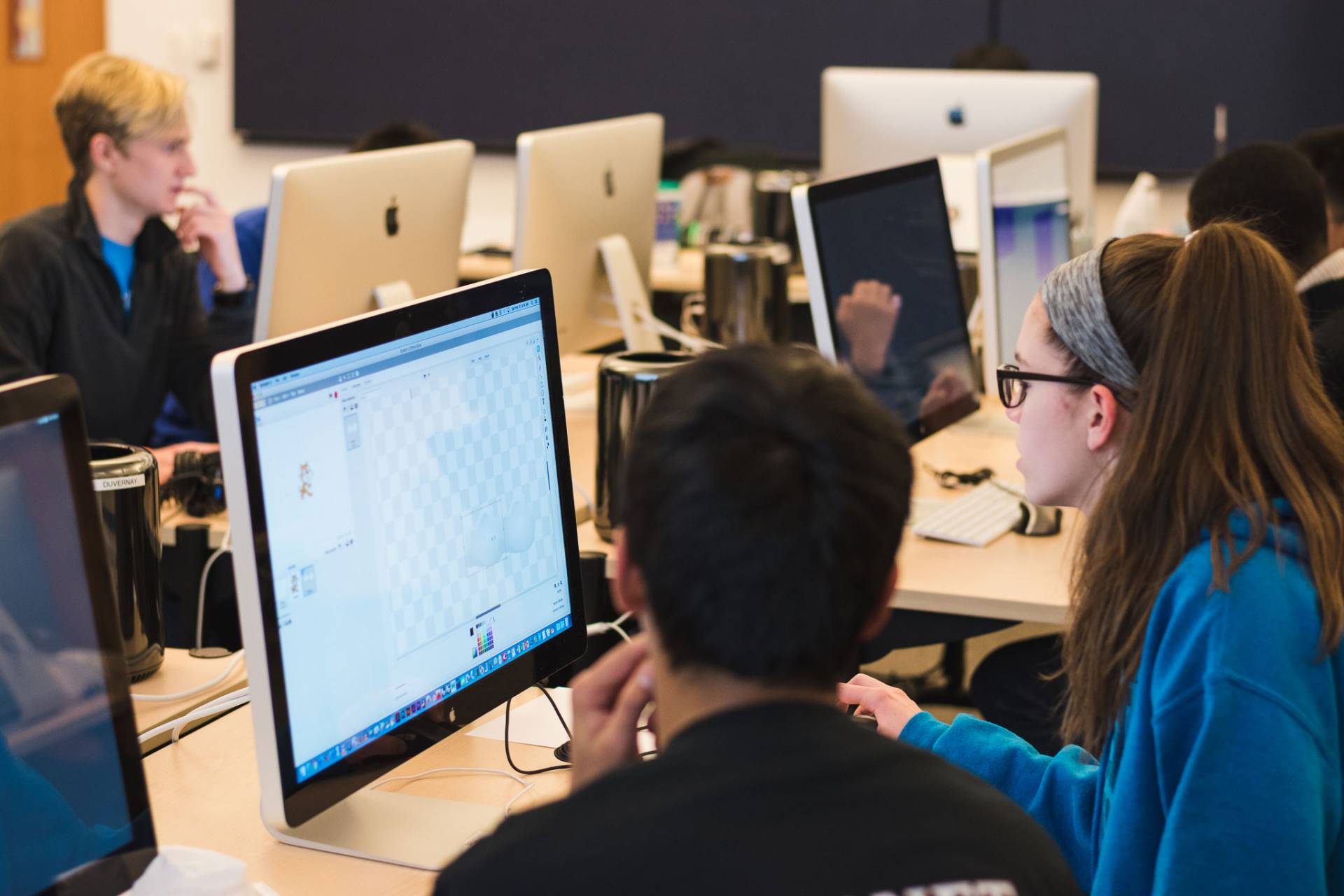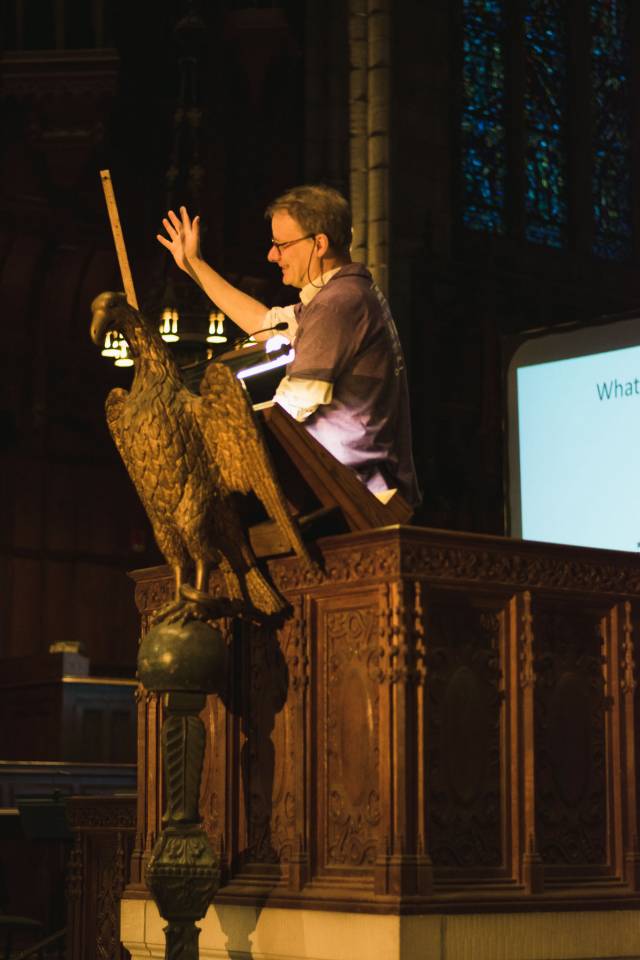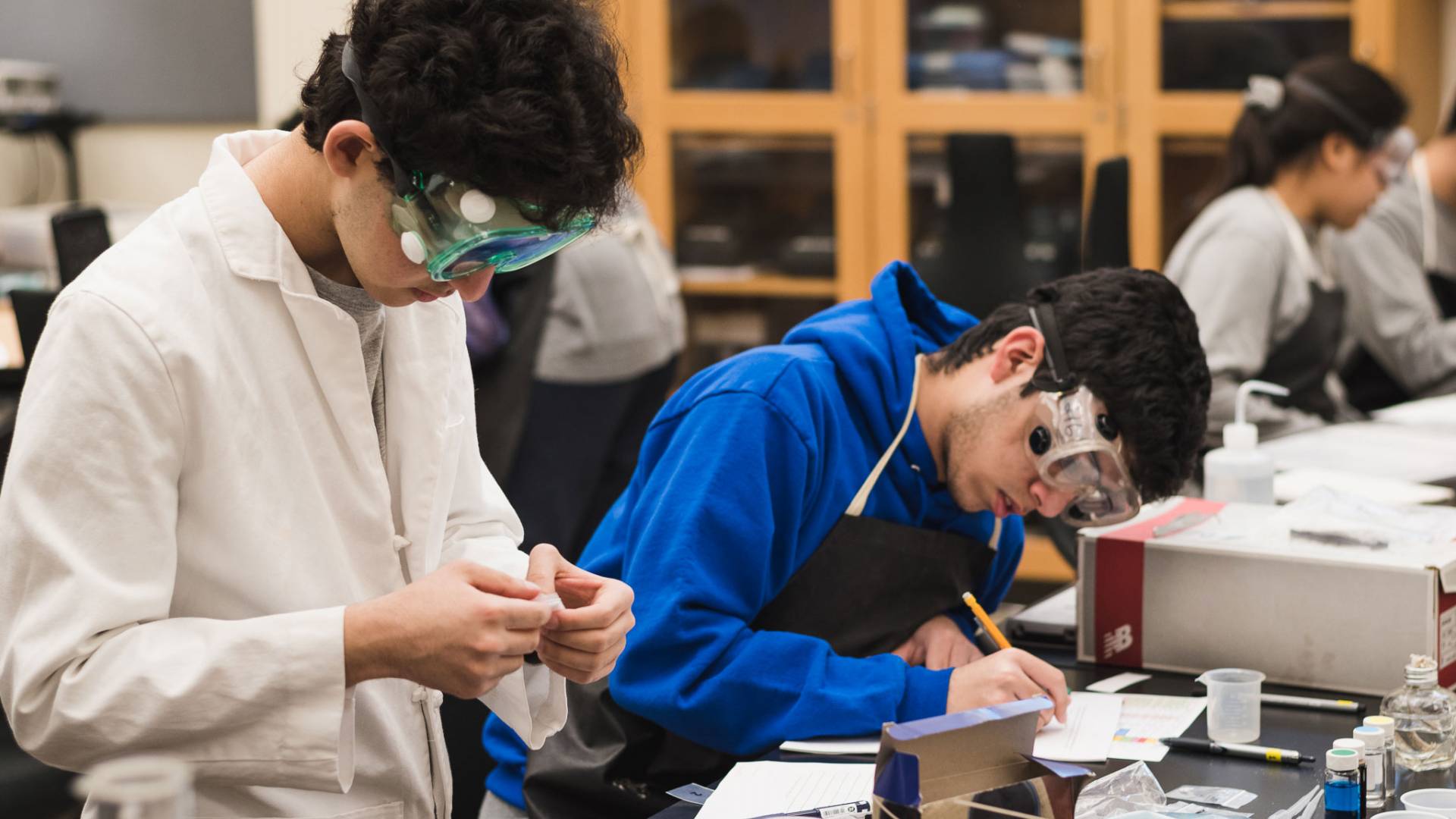For a full day on Saturday, Feb. 10, students from high schools across the country participated in a variety of events as part of the second annual Princeton University Science Olympiad Invitational Tournament. For the forensics event, students were provided with a crime scenario, realistic evidence and suspect profiles, and asked to solve the crime — aided by lab equipment.
On Saturday, Feb. 10, some 800 students from 48 high school teams across nine states — as far as Washington and Florida — arrived on campus to compete in the second annual Princeton University Science Olympiad Invitational Tournament.
Science Olympiad is a team competition for students in 6th to 12th grade that nearly 8,000 schools participate in nationwide. Teams compete in 23 events spanning a variety of disciplines — think of Science Olympiad as the track and field of science competitions.
Events range from paper tests on subjects such as astrophysics and microbiology, to laboratory-based practical exams in forensics science, to engineering events in which students test devices built prior to competition day such as rubber-band propelled helicopters. While there are many Science Olympiad tournaments across the country, all follow the same format and rules.

Students compete in the astronomy challenge, focusing this year on stellar evolution and Type II supernova events.
Tests at the Princeton tournament are written by Princeton undergraduate students and a handful of students from other universities who competed at the national level in high school. All competition events are designed to encourage creative problem-solving skills over rote memorization.
“At Princeton, we have so many students who have competed in Science Olympiad before, and we wanted to bring people together to create the best tournament experience possible,” said William Jiao, a co-director of this year’s tournament. While the tests were meant to be difficult for even the most seasoned teams, the organizers made sure to include ample questions that any team could comfortably answer.
The all-day tournament took place in Frick Chemistry Lab, McDonnell Hall, Jadwin Hall, Fine Hall, Lewis Library, Peyton Hall, Guyot Hall, Robertson Hall, Jones Hall, and McCosh Hall, and culminated in a two-hour closing ceremony held in the University Chapel. Lyman Page, the James S. McDonnell Distinguished University Professor in Physics, gave the keynote speech, and Opus 21, an undergraduate chamber group, gave a guest performance of the first and last movements of Dvorak’s "American Quartet."

"Game on": participants are tested on their ability to make computer games using Scratch.
Under the leadership of co-directors Jiao and Shirley Zhang, members of the Class of 2020, this year's tournament at Princeton was the first nationwide to waive participation fees in order to make Science Olympiad competitions more accessible.
“A lot of teams, even competitive ones, don’t have the resources to travel to invitational tournaments," said Zhang. "But invitational tournaments were integral to our high school Science Olympiad experience, and we wanted more high schoolers to be able to experience what a well-run Science Olympiad tournament is like.”
Last year’s tournament hosted 36 high school teams from four states, and this year's tournament hosted 48 teams from nine states.
The tournament was also notable for bringing students from all corners of campus together. Nearly 150 undergraduate and graduate students from 25 academic departments volunteered. Administrative support from the Office of Environmental Health and Safety and the Office of the Dean for Research was instrumental in helping the organizing team run the competition.

Lyman Page, the James S. McDonnell Distinguished University Professor in Physics, delivers a closing ceremony keynote speech in the University Chapel.
“It was very encouraging to work with so many Princeton students who were willing to volunteer their time for the tournament, and truly care about STEM education," said David Fan, Class of 2019, co-founder and co-director of last year’s tournament. "We invested a lot of effort into making the answer keys and instructions clear, so that even people without a STEM background could still help out.”
“There’s something special about a group of high schoolers coming together to engage in friendly competition over something they are clearly passionate about," said Alia Wood, Class of 2020. "Seeing how happy they are, even in the midst of a competitive and stressful environment, reminds me to keep a positive attitude in pursuit of a concentration that I love. I really enjoyed volunteering for the past two tournaments and look forward to volunteering again next year!”
This year’s tournament was supported financially by the School of Engineering and Applied Science, Princeton Environmental Institute, Princeton Institute for the Science and Technology of Materials, and the departments of physics, chemical and biological engineering, astrophysical sciences, geosciences, and chemistry. Lab space was provided by the Department of Geosciences, while lab equipment was provided by the Department of Chemistry and the Department of Molecular Biology. Other financial support came from D.E. Shaw, Jane Street, Linode, Indico and Cintas. Laura Conour of the Office of the Dean for Research served as administrative liaison for the student group.
The Princeton University Science Olympiad was founded in fall 2016 by David Fan and Edison Lee of the Class of 2019, with a mission to inspire creative problem-solving, STEM literacy and love of learning.



